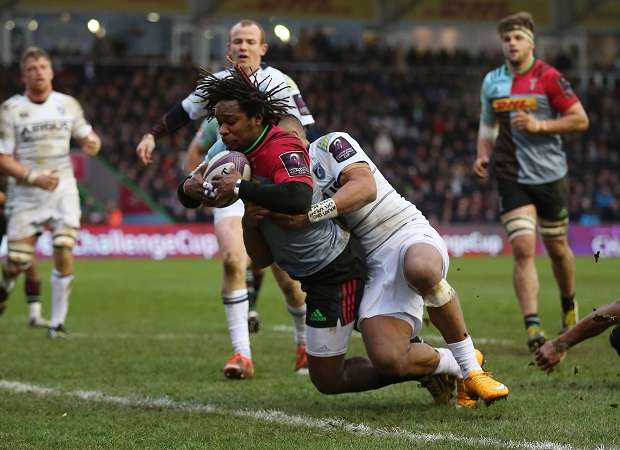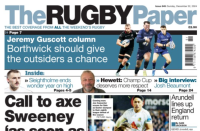 Selection is something that everyone thinks they are better at than anyone else, and so always causes a stir of emotion. Whether it’s your local team or the Lions, we all have our own ideas as to who should be picked and why, all from our own perspective.
Selection is something that everyone thinks they are better at than anyone else, and so always causes a stir of emotion. Whether it’s your local team or the Lions, we all have our own ideas as to who should be picked and why, all from our own perspective.
The selections we make are always subjective in the sense that we assume that the team management want to play the same style of game that we do and will therefore need the same style of player.
The idea that our choice may not suit the balance of the team usually never enters our minds as we pontificate on what might be, or have been. I say what might be or have been because inevitably it is before a game is played,or after a defeat, that most of our speculative selections take place.
England’s tour to Australia is just such a case with almost everyone questioning Eddie Jones‘ statement that high scoring Chris Ashton was not in his top three wings in English rugby and therefore does not deserve to be picked.
Jones has said that he wants his England team to be abrasive and physical with an attitude, some might say that that is almost a perfect description of Ashton but it is how you use those qualities that define how useful you are to team.
Not all players are created equal and each has their own qualities that make them either an asset or hindrance for a team dependant on how the management want to play the game.
The one comment from Jones that defines this was made when asked why he had chosen Marland Yarde instead of Ashton, given the latter had scored many more tries this season than the former. His answer was that Yarde has ‘great coachability’.
So while Ashton scored a load of tries playing in a successful Saracens team, he was probably unable to show the necessary adaptability to embrace the game that Jones wants England to play.
But having a selection issue isn’t news, as England coaches have always made player choices with which fans disagree. The refusal of Ashton to tour with England Saxons is something completely different and smacks of arrogance that he thinks himself too good for the A team.
As a player you always have to have confidence that you are the best in your position and you will beat your opposition no matter who they are. The confidence to know that you are better than your opponents is fundamental to winning, so even if you lose your first encounter, you know, not think, that you will win the next.
If you only think that you might win, you are already admitting the possibility that you might lose. Whereas if you know you are going to win, the thought of losing just doesn’t enter your head.
That confidence is what makes great players but there is a fine line between confidence and arrogance and if you cross that line, you can become a liability.
When I was playing for Wasps and London Division, having played against all contenders, I knew that I was the best tighthead prop in the country and was determined to play for England.
However, that view was not shared by the England management of the time and so despite breaking into the England squad and playing games against minor nations, I had to wait three years before finally getting my first cap, having sat on the bench through the inaugural World Cup without getting on the field in a capped major international.
Despite the constant disappointments of not being selected, it never once crossed my mind that I would no longer make myself available for any representative side for which I had been selected.
Whether club, county, divisional, regional, England B or whatever, if selected, I felt I was honoured to asked to play.
Part of the reason I was content to wait for my England chance was that I respected the player, Gary Pearce, who was the incumbent at the time. Gary was a very good tighthead prop as Fran Cotton can testify as it was him that recommended that ‘Baby’ be picked after having a tough time against him during an England training session.
Although we were similar, we both had different skill-sets and I was a far more destructive prop than Gary, but his less confrontational style was what the England management wanted.
I was only given my chance after the 1987 World Cup when the England management were changed and Geoff Cooke took over. He wanted a more ‘aggressive’ tighthead and Roger Utley suggested me. Despite my successful transition to full international in1988, in 1989 I was selected to play for England B against Fiji.
At no point did I think that I would not play and although the game may not have gone down in history, it is memorable for me because it was the first of my many England games with a certain young Jason Leonard.
The point I make is, as a player you play when and where you are picked to play. To think that you are so indispensable that you can choose where and when you play is not confidence, it’s arrogance.
After all, as Geoff Cooke once said when questioned by the press for dropping a player they thought indispensable, “The graveyard is full of indispensable men.”























